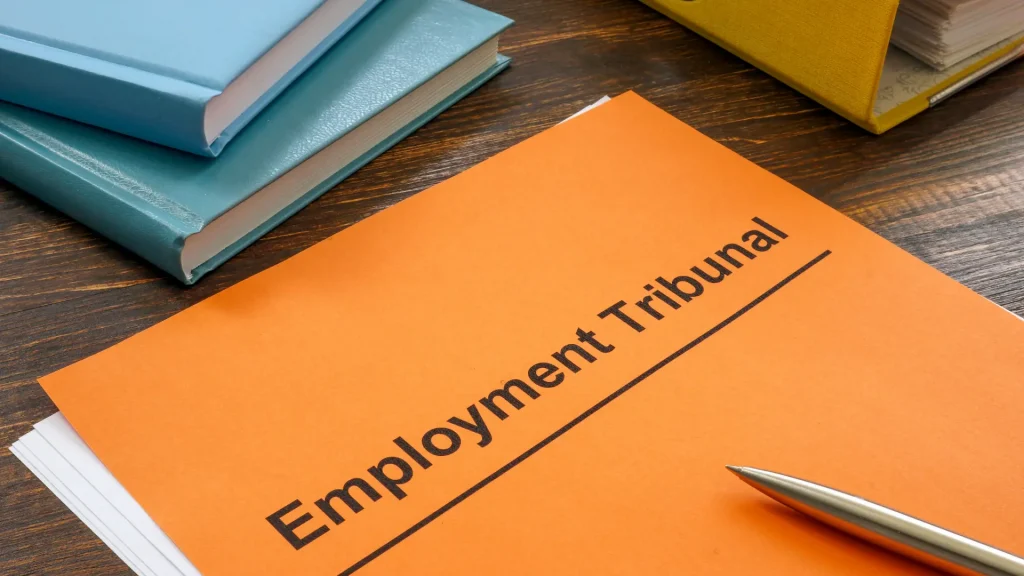Unions, legal networks and rights organisations have slammed the government’s decision to reintroduce employment tribunal fees.
In a joint statement penned by 48 organisations and campaigners including the TUC, Citizens Advice, Maternity Action, Women’s Budget Group, Liberty, Joseph Rowntree Foundation, Fawcett Society, Mother Pukka, the groups call on the government to urgently reconsider its plans.
In 2017, after Unison brought a legal challenge, the Supreme Court quashed the previous tribunal fees regime because it “effectively prevents access to justice and is therefore unlawful.”
The joint statement says the decision will put yet another hurdle in front of those seeking justice, highlighting the existing barriers working people face including:
- Lack of awareness of key employment rights and the process for bringing a claim.
- Strict time limits on filing claims.
- An under-resourced employment tribunal system leading to significant delays in cases being heard
- An under-funded labour market enforcement system that doesn’t have enough inspectors to proactively enforce employment rights.
The groups say that introducing fees will encourage exploitation of workers:
“We believe this will deter many from lodging worthy claims and gives a green light to bad employers to exploit their workers.
“Bad employers are being given the go-ahead to undercut good ones, safe in the knowledge they are less likely to face claims in the employment tribunal.
“Employment rights are only real if they are enforced. Tribunal fees risk pricing many workers out of workplace justice.”
They raise concerns about the impact on workers in the middle of a cost of living crisis:
“Workers seeking recovery of wage theft, unpaid redundancy pay and compensation for unfair dismissal are to be asked to stump up extra money at an incredibly tough moment in their lives.
“Fee exemption procedures are complex and difficult to understand for many, especially within the three months’ time limit for most claims.
“Fees are also being levied at a time when rising inflation and subdued wages are putting pressure on family budgets. Access to justice must never be contingent on your ability to pay.”
And they warn that those at the sharp end includes workers already at high risk of mistreatment
“Tribunal fees risk pricing many workers out of workplace justice, especially workers at greater risk of employment law violations such as pregnant workers, disabled workers and migrant workers.”
TUC General Secretary Paul Nowak said:
“All working people should be able to enforce their rights.
“But introducing fees for tribunals puts yet another hurdle in the way of those seeking justice at their most vulnerable moment.
“The Conservatives have already tried this and failed. Last time they introduced tribunal fees, claims dropped by two-thirds. And the Supreme Court threw fees out – saying they interfered with access to justice.
“That should have been the nail in the coffin for these cynical plans, but ministers have decided to side with bad bosses over workers and resurrect employment tribunal fees.
“Employment tribunal fees give employers a pass to exploit workers – whether it’s discrimination, unfair sackings or withheld wages.
“Working people shouldn’t be picking up the bill for exploitative employers’ poor behaviour. It’s plain wrong. Ministers must halt their plans without delay.”
Rosalind Bragg, Director at Maternity Action Group, said:
“For pregnant women and new mothers in the cost of living crisis, every penny counts. Charging fees for employment tribunal claims puts the justice system out of reach for women at a time when they are most in need of protection.
“If the Government is serious about stamping out maternity discrimination, they should be reducing barriers to justice not increasing them. Fees will reduce the deterrent effect of the employment tribunal, reassuring bad employers that they can get away with breaking the law.
“We have laws in place to secure equal treatment of pregnant women and new mothers at work but these are ineffective without the robust operation of the employment tribunal. Fees are a step backwards in the fight for gender equality.”
Joint statement:
As organisations that advocate for workers’ ability to enforce their rights, we strongly oppose the government’s plans to impose fees on people who file an employment tribunal claim.
Following a landmark victory by trade union UNISON, the previous employment fees regime was ruled unlawful by the Supreme Court due to its restriction on access to justice and discriminatory impact.
It appears the government is intent on repeating the mistakes of the past.
We believe reintroducing tribunal fees would block many from lodging worthy claims and give a green light to bad employers to exploit their workers.
There are already considerable barriers to those seeking justice at work:
An under-resourced employment tribunal system leading to significant delays in cases being heard.
An under-funded labour market enforcement system that doesn’t have enough inspectors to proactively enforce employment rights.
- Lack of awareness of key employment rights.
- A complicated process for bringing a claim.
- Difficulty in accessing legal support.
- Strict time limits on filing claims.
Workers seeking recovery of wage theft, unpaid redundancy pay and compensation for unfair dismissal are to be asked to stump up extra money at an incredibly tough moment in their lives. Fee exemption procedures are complex and difficult to understand for many, especially within the three months’ time limit for most claims.
Fees are also being levied at a time when rising inflation and subdued wages are putting pressure on family budgets. Access to justice must never be contingent on your ability to pay.
Meanwhile bad employers are being given the go-ahead to undercut good ones, safe in the knowledge they are less likely to face claims in the employment tribunal.
Employment rights are only real if they are enforced. Tribunal fees risk pricing many workers out of workplace justice, especially workers at greater risk of employment law violations such as pregnant workers, disabled workers and migrant workers.
We urge the government to reconsider its plans.

